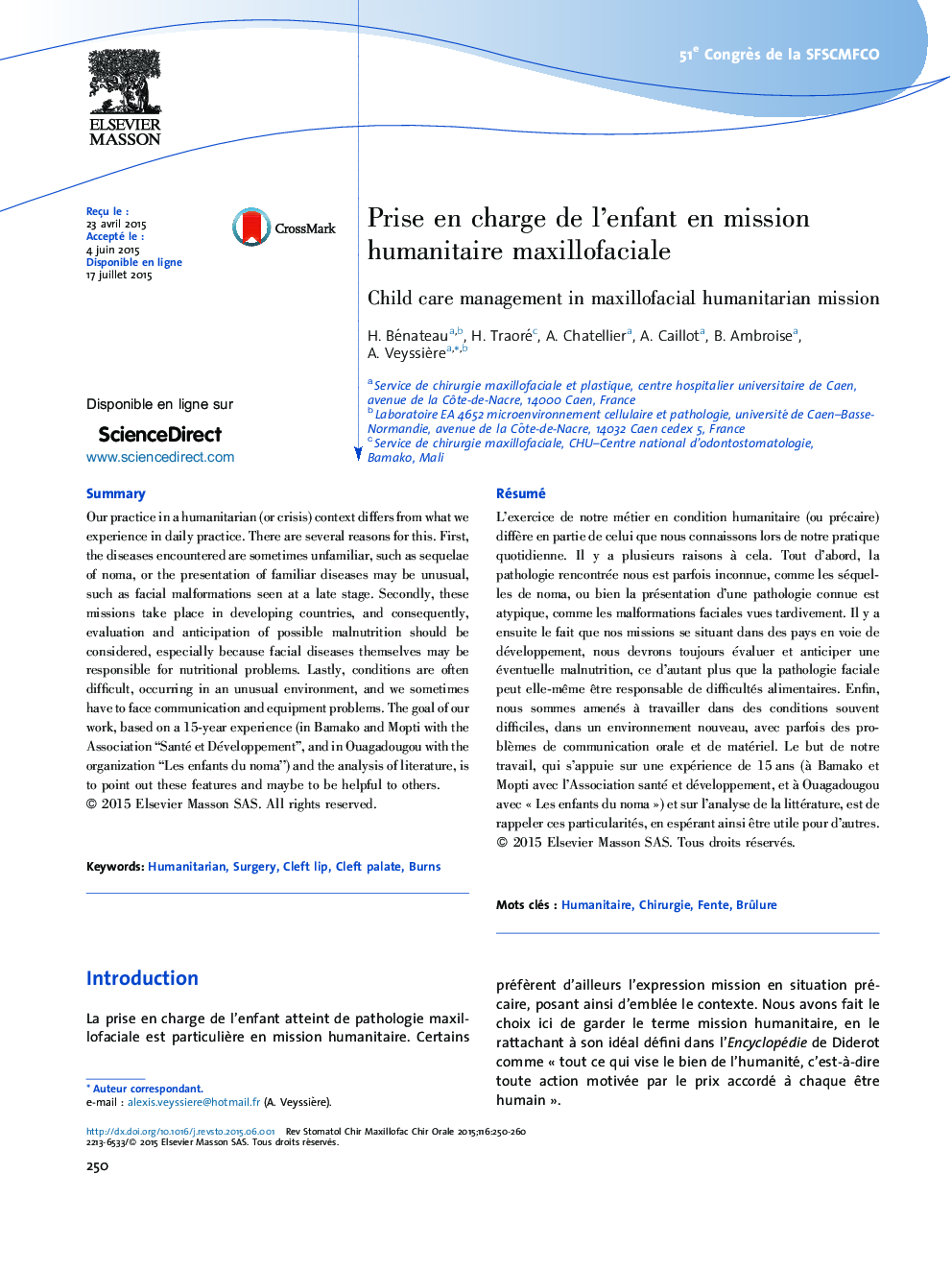| Article ID | Journal | Published Year | Pages | File Type |
|---|---|---|---|---|
| 3175036 | Revue de Stomatologie, de Chirurgie Maxillo-faciale et de Chirurgie Orale | 2015 | 11 Pages |
Abstract
Our practice in a humanitarian (or crisis) context differs from what we experience in daily practice. There are several reasons for this. First, the diseases encountered are sometimes unfamiliar, such as sequelae of noma, or the presentation of familiar diseases may be unusual, such as facial malformations seen at a late stage. Secondly, these missions take place in developing countries, and consequently, evaluation and anticipation of possible malnutrition should be considered, especially because facial diseases themselves may be responsible for nutritional problems. Lastly, conditions are often difficult, occurring in an unusual environment, and we sometimes have to face communication and equipment problems. The goal of our work, based on a 15-year experience (in Bamako and Mopti with the Association “Santé et Développement”, and in Ouagadougou with the organization “Les enfants du noma”) and the analysis of literature, is to point out these features and maybe to be helpful to others.
Related Topics
Health Sciences
Medicine and Dentistry
Dentistry, Oral Surgery and Medicine
Authors
H. Bénateau, H. Traoré, A. Chatellier, A. Caillot, B. Ambroise, A. Veyssière,
